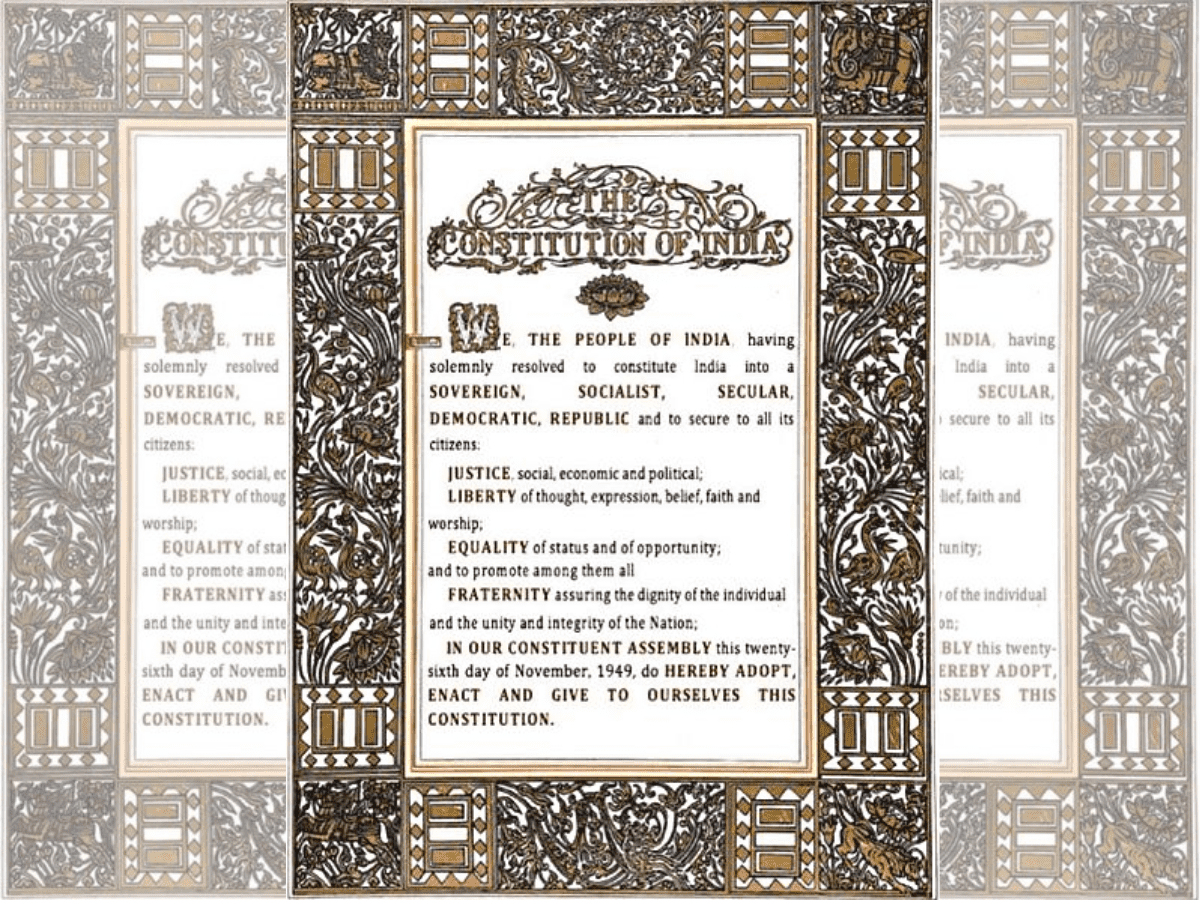
New Delhi: Refusing to refer the matter to a larger bench, the Supreme Court on Friday decided to pronounce its decision on November 25 over the validity of the 42nd Constitutional Amendment passed in 1976 to add the words “socialist” and “secular” in the Preamble.
A bench headed by Chief Justice of India Sanjiv Khanna, which earlier said that a catena of apex court judgments has held that secularism was always a part of the basic structure, on Friday reserved its orders on a batch of petitions on the matter.
The bench, which also included Justice Sanjay Kumar, stopped short of pronouncing the order during the day’s hearing, refusing to send the matter to a larger bench for a decision on the issue.
Earlier, the court, which was hearing a clutch of petitions challenging the insertion of “Socialist” and “Secular” in the Preamble, declined to issue notice.
Petitions in SC against amendment of Preamble
Several petitions have been filed before the Supreme Court challenging the 42nd Constitution Amendment Act, 1976 by which the words “Socialist” and “Secular” were inserted in the Preamble of the Constitution.
One of the petitions said that such an amendment is against the “historical and cultural theme of the Great Republic of Bharat, the oldest civilisation of the world”.
It further contended that the concept of “Dharma” is different from the concept of religion and the Communist theory of state cannot be applied in the Indian context, which has been a total failure and is not in tune with the religious sentiments and socioeconomic conditions.
“How can the citizens of India be compelled to be secular when they have the fundamental right to Freedom of Religion under Article 25 of the Constitution of India to freely profess, practise and propagate religion,” the plea said.
The plea urged the top court to issue direction or declaration that the concepts of “Socialism” and “Secularism” occurring in the Preamble of the Constitution refer to the nature of the Republic and are limited to the working of the sovereign function of the state and the same is not applicable to the citizens, political parties, and social organisations.
The plea contended that in France and some other countries, a secular government is never involved in religious matters whereas the Indian Constitution itself has empowered the state to indulge in religious matters and some special rights have been given even to religious minorities under Article 30 of the Constitution.
The petition also challenged the insertion of the words ‘Secular’ and ‘Socialist’ in the Representation of the People Act, 1951, making it compulsory for the political parties applying for registration before the Election Commission to make a specific provision in their memorandum that the association will have true faith and allegiance to the Constitution and “to the principles of ‘Socialism’ and ‘Secularism’ and democracy and would uphold the sovereignty and integrity of India.”
BJP’s push to change the preamble
The Union led by the Bharatiya Janata party (BJP) government on the occasion of India’s 75th Republic Day, published the ‘original’ Preamble of the constitution online, without the words ‘secular’ and ‘socialist’ in it sparking a massive row.
The Bharatiya Janata Party (BJP) has historically opposed the inclusion of “socialist” and “secular” in the Preamble to the Indian Constitution.
The party has criticized the addition of these words, arguing that they were inserted for political reasons and do not reflect the true spirit of the Constitution.
Some members of the BJP have sought to remove “socialism” from the Preamble, stating that it should not bind future generations to a specific ideology.
Not the first time
Additionally, the party has been involved in controversies related to the use of the Preamble without the words “socialist” and “secular.” However, the opposition to these terms has been met with criticism and debate from other political parties and scholars, who defend their inclusion as reinforcing the foundational principles of the Indian Constitution.
In September 2023, there was a controversy regarding the absence of the words “socialist” and “secular” in the copies of the Constitution given to MPs.
The Congress Party objected, stating that these words were missing from the Preamble in the copies they received.
Congress leader Adhir Ranjan Chowdhury expressed his concerns, stating that the words were added later through a Constitutional amendment and their absence in the copies was a serious matter.
Union law minister Arjun Ram Meghwal clarified that the copies given to the MPs carried the original version of the Preamble, and the words were added later through constitutional amendments.
The BJP justified the exclusion of these words by stating that they merely retained the original Preamble.
“The constitution existed like this when it was framed. The change came into place after the 42nd Amendment. Genuine copies of the Constitution exist,” BJP leader and Parliamentary Affairs Minister Prahlad Joshi had said.
42nd Amendment Act, 1976
The Preamble to the Constitution of India was adopted on November 26, 1949, by the Constituent Assembly of India and came into effect on the same day. It serves as a brief introductory statement of the Constitution, setting out the guiding purpose, principles, and philosophy of the Indian Constitution.
India’s Preamble was amended once, during the emergency by then Prime Minister Indira Gandhi. The amendment was made by the 42nd Constitutional Amendment Act, of 1976, which added three new words: “socialist,” “secular,” and “integrity”.
The 42nd Amendment replaced the words “sovereign democratic republic” with “sovereign socialist secular democratic republic” and changed “unity of the nation” to “unity and integrity of the nation.
During a speech in the Lok Sabha on October 27, 1976, Indira Gandhi stated that the amendment to the Preamble “is responsive to the aspirations of the people, and reflects the realities of the present time and the future.”
(with inputs form IANS)



